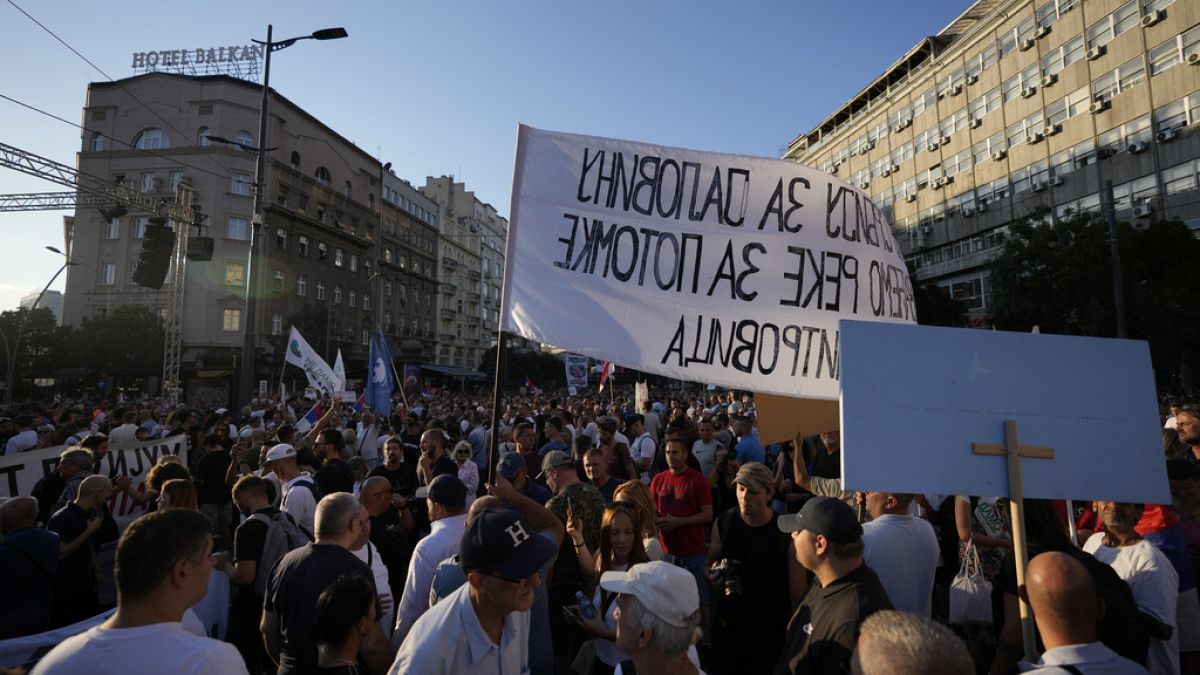Thousands of protesters gathered in Belgrade to oppose an EU-backed lithium mining project in the Jadar Valley. The Serbian President Aleksandar Vučić has promised to visit affected towns and cities to address concerns. Despite supporting the peaceful protests, he criticized the blockades of railway and bridges as undemocratic. The government argues that the mining operation is essential for economic development, while protesters fear catastrophic environmental impacts. Vučić has previously labeled the protests as a Western-backed “coup”.
The plan to mine lithium in Serbia, involving multinational company Rio Tinto, was originally scrapped in 2022 due to widespread public opposition. However, after a new deal was reached last month with EU representatives, the plan has been revived. The Serbian government views the project as a step towards EU membership and a way to reduce dependence on Chinese electric vehicle imports. Despite promises to uphold environmental standards, residents of the Jadar Valley strongly oppose the mine, citing irreversible environmental damage as a major concern.
The protests in Belgrade were preceded by similar demonstrations in other Serbian towns and cities, indicating widespread opposition to the lithium mining project. While the government sees the project as a key driver of economic growth, protesters, including green groups, warn of the potential environmental devastation it may cause. President Vučić’s response to the demonstrations has been mixed, expressing a willingness to engage with dissenting voices while condemning certain tactics used by the protesters.
As tensions escalate between the government and protesters, concerns over environmental protection and sustainable development remain at the forefront of the debate. The EU’s support for the lithium mining project has further fueled the controversy, with critics questioning the motivations behind the deal and its potential impact on the region. With the fate of the Jadar Valley hanging in the balance, the conflict between economic interests and environmental concerns continues to intensify, promising further unrest in the days ahead.
Despite President Vučić’s attempts to address public concerns and encourage dialogue, the divide between the government and protesters appears to be widening. The reemergence of the lithium mining project has reignited long-standing tensions over environmental issues and the balance between economic growth and sustainable development. As the protests in Belgrade draw international attention, the future of the Jadar Valley remains uncertain, with the potential for further clashes between authorities and demonstrators. The outcome of this conflict will not only impact the region’s environment but also test the government’s commitment to democratic principles and public accountability.











